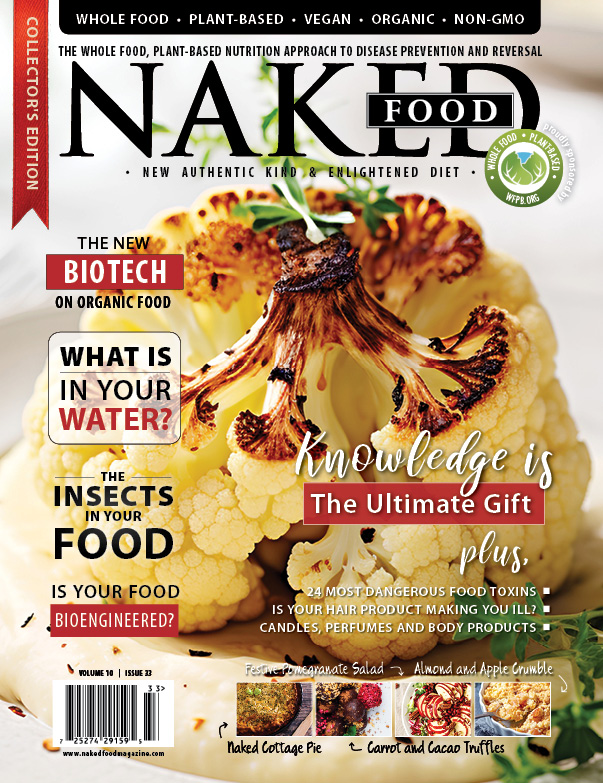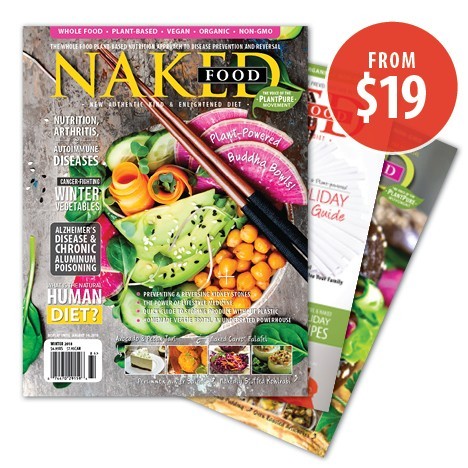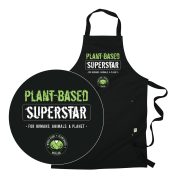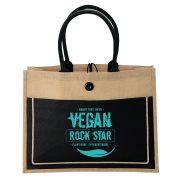An interview with Noah Gittell, Director of Government Affairs of the Physicians Committee for Responsible Medicine.
Q: For those readers who may not be familiar with PCRM, can you tell them a little about what you do?
A: Sure! PCRM is a national non-profit that promotes preventive medicine, especially nutrition, and advocates for higher ethical standards in medicine and research. What does that mean? It means that we promote the benefits of a plant-based diet to the public and to policymakers. We are the only vegetarian or vegan organization that conducts clinical research on the medical impact of a plant-based diet, and we also work to end the use of animals in medical training, research, and testing.
Q: And how is your role defined?
A: I work with members of Congress and federal agencies to promote these values in federal programs. We have been active on the reauthorization of the Child Nutrition Act, trying to get plant-based options into the school lunch program, and of course, the Farm Bill. We’re currently engaged in efforts to require physicians employed by the federal government to get continuing education in nutrition. You’d be amazed – or maybe you wouldn’t be – how little some physicians know about the power of diet.
On the research and education side, we have advocated in favor of the Great Ape Protection Act and the BEST Practices Act, which would end the military’s use of live animals in combat trauma training. Currently, more than 8,000 pigs and goats are killed every year for military medical training, but the same skills are taught in the civilian world using full-body simulators.
Q: I’d like to get back to the Farm Bill for a minute because I think it’s a mystery to people. They know it’s important, but they don’t know exactly why. Can you explain what the Farm Bill is, and why people should care about it?
A: I think you’re right, and it is hugely important. It basically sets federal policy on all food-related matters. It’s a massive bill that includes nearly a trillion dollars in spending. It is always going to be difficult to enact change in a bill that size because there are so many corporate interests and so much at stake, but there are huge opportunities within it to shift the paradigm towards a healthy, plant-based diet, and that’s what we’re trying to do.
One place you can effect change is from the supply side. The Farm Bill contains billions of dollars in
subsidies – i.e. handouts – to the producers of meat and dairy. PCRM produced a report two years ago demonstrating that 63 percent of all subsidies in the bill go either directly or indirectly (through corn and soy, grain feed for livestock) to meat and dairy, the same foods that are directly contributing to our crises of diet-related disease.
Guess how much goes to fruits and vegetables? Less than one percent! So that’s something we have to change. But another place where we can start to improve people’s diets is through SNAP – the Supplemental Nutrition Assistance Program, formerly known as “food stamps.” There is a growing movement to make SNAP more nutrition-oriented, and we’re playing a major role.
Right now, you can buy basically any food product with your SNAP benefits. If you want, you can buy healthy foods like fruits and vegetables or unhealthy junk food like processed meat, dairy, or sodas. But we have found that grocers in low-income neighborhoods don’t event stock those healthy foods, and it’s because of SNAP. These grocers have no incentive to stock healthy foods; and they, instead, load up their shelves with highly-processed, shelf-stable junk. It’s a dangerous cycle because low-income individuals often have less access to health care, yet we’re not giving them the opportunity to make healthy choices and prevent disease.
Q: Sounds like a huge problem. How do we change it?
A: Well, it’s going to be a long battle. The USDA doesn’t want SNAP to change, and neither do the junk food manufacturers who hold a lot of sway in Congress.
A great first step would simply be to allow cities and states to experiment with some changes in what SNAP covers. Right now, SNAP is the same in every city and state. They have no freedom to respond to the needs of their community and play around with food eligibility in the program. In June, Mayor Bloomberg of New York City, spearheaded a letter signed by 17 other major-city mayors, urging Congress to force the USDA’s hand, and let cities experiment with the program. So far, they haven’t done it, but the Farm Bill is a place where Congress could do that.
Q: And where does the Farm Bill currently stand?
A: At the moment, nowhere. Here’s how it works: the Farm Bill has to be reauthorized every four or five years, or else its programs that need funding expire. Congress was supposed to pass it last year, and the Senate was able to pass a bill, but the House couldn’t come up with the votes to pass it.
There is a bit of a battle going on regarding funding of SNAP, and there are serious divisions, not just between Democrats and Republicans, but also among Republicans on how much to cut. So they had to pass a one-year extension that maintained funding at current levels. This year, it was like déjà vu all over again. The Senate passed their bill, and the House could only pass a stripped-down version of it that has no chance at being approved by the Senate or the President. It looks like we’re looking at another one-year extension, which is actually a good thing for us because it gives us more time to gather support for the amendments we’re trying to pass.
Q: On SNAP?
A: Yes, but we also have two others that we’re supporting. Rep. Earl Blumenauer (D-OR) has offered an amendment that would eliminate a certain type of subsidy from going to factory farms. Right now, the USDA offers subsidies for environmental clean-up. This is known as EQIP, the Environmetal Quality Incentives Program.
Factory farms use taxpayer money to clean up their water pollution, but there’s very little oversight, and
sometimes they end up using that money to build even bigger facilities. It’s one of many handouts in the bill to producers of foods that are making us sick, both from eating those foods and from the pollution associated with their production. At PCRM, we think that Big Ag should bear the burden of their pollution, not the taxpayer, and taking this free clean-up away would discourage them from keeping so many animals in such small spaces. It would also decrease water and air pollution.
Q: Makes sense. What about the farm subsidies?
A: We also supported an amendment to drastically cut subsidized crop insurance. Unlike other industries, American taxpayers pay for some of farmers’ insurance against natural disasters and falling commodity (corn, soy, wheat, etc.) prices. Taxpayers cover 60 percent of all agricultural insurance, actually.
Of course, the vast majority of these subsidies – again – go to meat and dairy producers, while fruit and vegetable growers get virtually nothing. Rep. Ron Kind (D-WI) authored a bipartisan amendment to drastically cut subsidized crop insurance, which is really just another handout to the meat and dairy industries. Fruit and vegetable growers get next to nothing in subsidies, and they seem to be doing okay. This amendment came very close to passing – it lost by just 10 votes – so with a little time we might be able to get it done.
Q: So what can people do to help?
A: Well, they can sign up for our action alerts at PCRM.org. That way they will know when to call their members of Congress and urge them to support these amendments. You know, Congress obviously plays an important role in this effort, but they only respond to public opinion. They’re not activists. The only way they will make these types of changes is if we force their hand. I do think it’s important that people vote with their dollar and continue their financial support of plant-based foods, but we also have to make sure Congress knows that we’re not going away. It’s going to take a long time, but if you look closely, you can see the seeds of change starting to grow.





